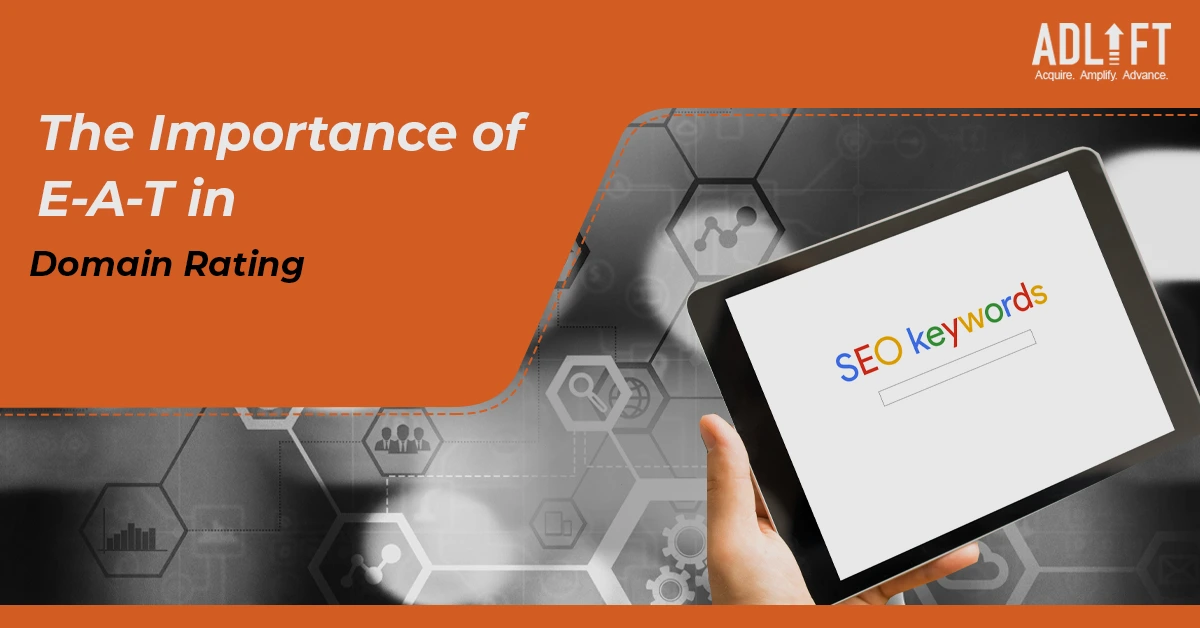The Importance of E-A-T in Your Website’s Domain Rating

At the core of a successful online presence lies an understanding of the Google algorithm and its requirements. One of the key factors that determine your website’s success is your domain rating, and this is largely influenced by the concept of E-A-T. E-A-T stands for Expertise, Authority, and Trustworthiness, and it is a critical aspect that needs to be understood and implemented in your website’s content, design, and overall strategy.
-
Expertise
Expertise denotes the extent of your comprehension and insight into a specific subject matter. In relation to E-A-T, it follows that your website should boast of a superlative standard of content, revealing an in-depth familiarity with your niche. Your content should be precise, comprehensive, and enlightening, written by luminaries within your field of expertise. Without this erudition, your website risks insolvency in Google’s trustworthiness criteria, thereby resulting in a lower ranking within search results.
-
Authority
Authority refers to the level of influence that your website has in your industry. This is closely related to the number and quality of backlinks that your website has. When other websites link to your content, it is a sign that they trust your content and consider you an authority in your niche. This is a key factor that Google considers when ranking websites, and it can have a significant impact on your domain rating.
-
Trustworthiness
Trustworthiness refers to the level of trust that users have in your website. This is closely related to the security and privacy measures that you have in place, as well as the overall user experience that your website provides. If your website is perceived as trustworthy, users are more likely to engage with your content, and this can have a positive impact on your domain rating.
Implementing E-A-T in Your Website’s Strategy
Now that you understand the importance of E-A-T in your website’s domain rating, it’s time to start implementing it in your strategy. Here are some tips to help you get started:
-
Focus on high-quality content
As mentioned earlier, high-quality content is a critical aspect of expertise. This means that you need to focus on creating content that is accurate, detailed, and informative. Your content should be written by experts in your field, and it should be regularly updated to reflect the latest information and trends in your niche.
-
Build backlinks
Building backlinks is an important aspect of authority. This means that you need to focus on building relationships with other websites in your industry and creating content that is link-worthy. When other websites link to your content, it is a sign of trust and authority, and it can have a positive impact on your domain rating.
-
Focus on user experience
User experience is a critical aspect of trustworthiness. This means that you need to focus on creating a website that is easy to use, secure, and provides a positive user experience. This includes factors such as page load speed, mobile-friendliness, and the overall design of your website.
-
Establish your expertise
Establishing your expertise is a critical aspect of E-A-T. This means that you need to focus on building your reputation in your industry by creating high-quality content, speaking at industry events, and engaging with other experts in your field. This can help to establish your authority and build trust with your audience.
Conclusion
In conclusion, E-A-T is a critical aspect that needs to be understood and implemented in your website’s strategy. By focusing on expertise, authority, and trustworthiness, you can improve your domain rating and increase your visibility in search results. By focusing on high-quality content, building backlinks, focusing on user experience, and establishing your expertise, you can create a website that is optimized for success in the Google algorithm and provides value to your audience. Keep in mind that E-A-T is not a one-time effort but an ongoing process. You need to continually update your content, build relationships, and focus on user experience to maintain and improve your domain rating.
It’s also important to note that E-A-T is not the only factor that influences your website’s success in the Google algorithm. There are many other factors, such as keyword optimization, page load speed, and mobile-friendliness, that also need to be considered. However, by focusing on E-A-T, you can create a solid foundation for your website’s success and improve your overall visibility in search results.
Another important aspect of E-A-T is the role it plays in Google’s efforts to combat fake news and misinformation. In recent years, Google has made a concerted effort to prioritize high-quality, trustworthy content in its search results. By focusing on E-A-T, you can help to ensure that your content is seen as reliable and trustworthy by both Google and your audience.
In conclusion, E-A-T is a critical aspect that needs to be understood and implemented in your website’s strategy. By focusing on expertise, authority, and trustworthiness, you can improve your domain rating and increase your visibility in search results.
By continually updating your content, building backlinks, focusing on user experience, and establishing your expertise, you can create a website that is optimized for success in the Google algorithm. Remember that E-A-T is an ongoing process and requires a long-term commitment to creating high-quality content that provides value to your audience.

